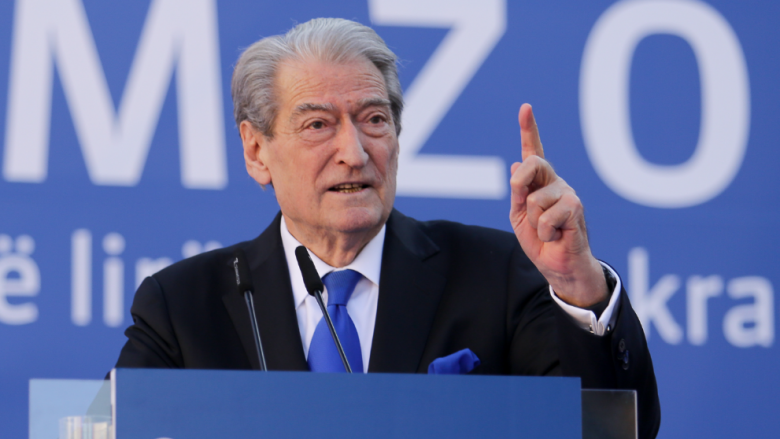Editorial note: The slow unraveling of Sali Berisha

Photo: Sali Berisha, leader of the Democratic Party.
The visible decline of Sali Berisha, the veteran leader of the Democratic Party, former president, and former prime minister, is one of the defining features of this electoral campaign. Once regarded as a tireless campaigner of boundless energy, Mr. Berisha has spent much of this season drawing attention less for his policies than for a string of public gaffes and faltering performances.
Mr. Berisha entered the race hoping to cast himself as an insurgent figure. He borrowed not only stylistic elements but also messaging from Donald Trump. The name of his coalition, “Majestic Albania,” was an intentional echo of Mr. Trump’s “Make America Great Again” (using “majestic” instead of “great” to avoid Balkan nationalist overtones). He even hired Chris LaCivita, one of Mr. Trump’s strategists, and adopted the now-familiar red baseball cap. The image was clear: a populist leader challenging the establishment.
But the campaign has unfolded differently. In rally after rally, Mr. Berisha has struggled with names, numbers, and speeches. In Burrel, he mistakenly offered voters his “most unheartfelt” greetings before correcting himself. In Fier, he confused oil workers with miners and misstated his own pension plan. During a moment of silence for the late Pope Francis, he made a vulgar slip of the tongue that quickly went viral. At several events, he appeared to forget the names of his own candidates or have difficulty pronouncing them.
While such lapses might once have been dismissed as harmless slips, their near-daily frequency has made them more consequential. After all, the campaign’s premise was that Mr. Berisha would inject renewed vigour and bring back his trademark combative politics. His candidacy was pitched as a corrective to Lulzim Basha, his more restrained successor-turned-rival, viewed by many Democrats as too passive and weak. Mr. Berisha, by contrast, promised an aggressive, take-no-prisoners style of opposition. His designation as non grata by the United States and the United Kingdom, and the ongoing corruption case against him, were folded into a narrative of political persecution—a sign, in his telling, that he was still a threat.
But Mr. Berisha is now 80. Unlike Mr. Trump, whose bombast continues to energize the American right, Mr. Berisha is visibly slowing down. As one analyst put it, “He came into the campaign hoping to be Trump. He’s ending up sounding more like Biden.”
His faltering performance has made it impossible for the Democratic Party to reclaim the ground it has ceded on the political right. Two new parties—Adriatik Lapaj’s Shqipëria Bëhet and Agron Shehaj’s Mundësia—are polling above the threshold to enter parliament. The Democratic Party, once the main vehicle for conservative and anti-socialist sentiment, is now being bypassed by voters, right under Mr. Berisha’s nose.
Indeed, some observers suggest that, contrary to the hopes of his loyal base, Mr. Berisha’s presence on the ballot is itself part of the reason the Democratic Party is faltering and why the Socialist Party appears poised for a landslide. Polls and projections indicate the Socialists are on course to win a historic fourth term, while the Democratic Party is expected to lose ground.
These elections will likely be remembered for several firsts: the debut of emigrant voting from abroad; the unprecedented fourth mandate for the Socialists; and the rise of new political actors after decades of a largely binary landscape. But perhaps most memorably, they may mark the twilight of Mr. Berisha’s long political career. Once the indomitable force of Albanian politics, he has become more often a subject of online parody than of political reverence. Whether this truly marks the end remains uncertain—but if this is his swan song, it is unmistakably off-key.


